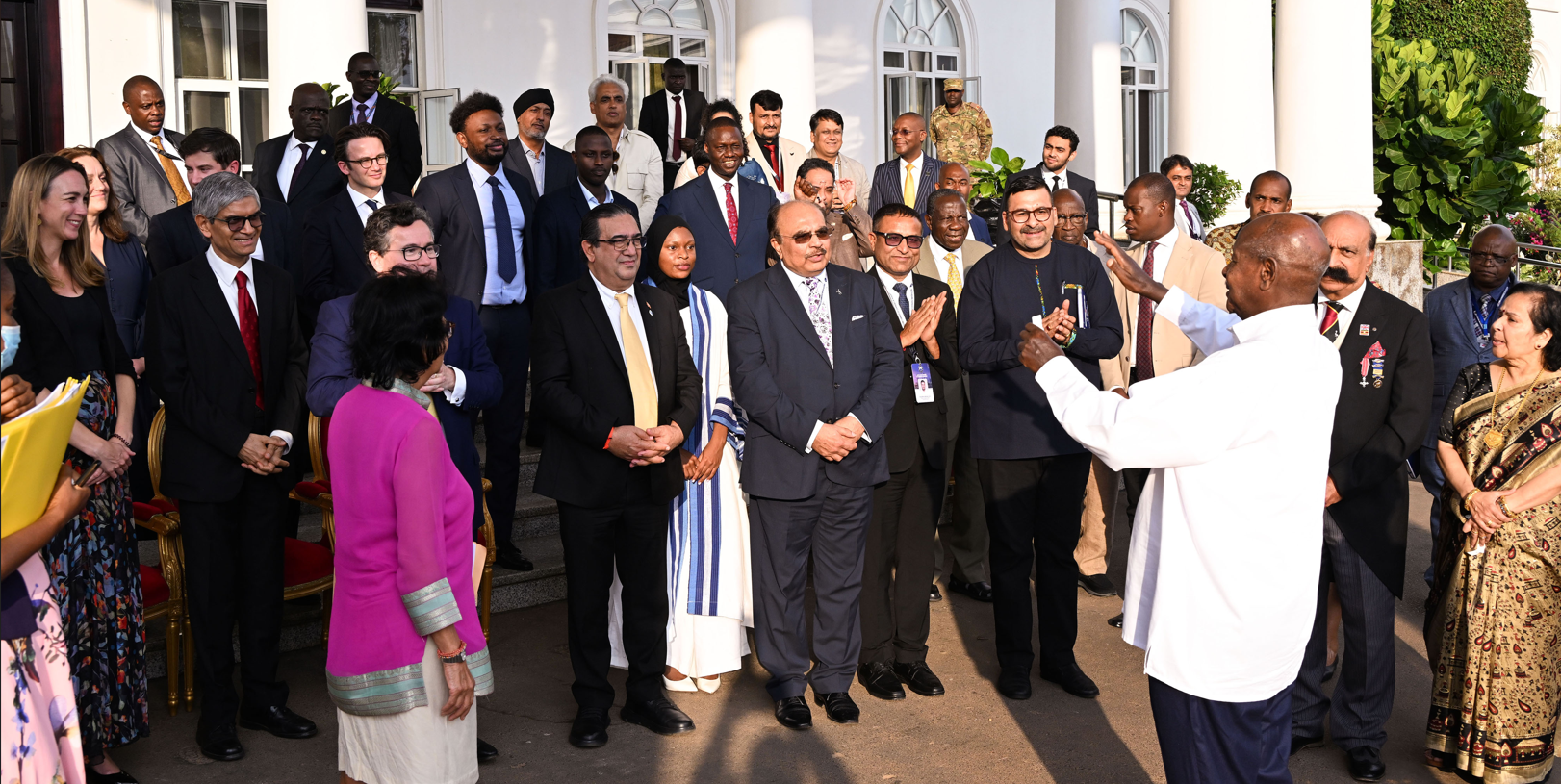
PRESIDENT MUSEVENI CALLS FOR CONTINENTAL ECONOMIC INTEGRATION TO DRIVE GLOBAL PROSPERITY
President Yoweri Kaguta Museveni on Monday 23rd February 2026 hosted a high-level UK–India–Uganda Multi-Sectoral Trade Delegation at State House, Entebbe, where he underscored the importance of continental economic integration as a pathway to shared global prosperity. The delegation comprised members of the Westminster Africa Business Association (WABA), led by CEO Laurence Robertson, and the South Asia Chamber of Commerce and Industry (SACCI), led by Chairman Mahendrasinh Jadeja. The British High Commissioner to Uganda, H.E. Lisa Chesney, also attended the meeting. Discussions focused on strengthening trade, investment, and manufacturing partnerships among the United Kingdom, India, and Uganda. President Museveni emphasized that sustainable prosperity is built on linking producers to consumers, supported by infrastructure, peace, skills development, and affordable finance. He highlighted Uganda’s strategic position as a stable gateway to East Africa and the wider African market under the African Continental Free Trade Area (AfCFTA), noting access to a domestic market of nearly 50 million people, 300 million people in East Africa, 600 million people in COMESA, and a continental market of over 1.5 billion people. The President called for accelerated infrastructure development through public-private partnerships and outlined priority investment areas, including manufacturing supported by affordable electricity, low-cost financing through the Uganda Development Bank, and improved transport networks such as regional railway links and oil pipeline infrastructure. Describing Africa as the “next big business centre of the world”, President Museveni said the continent’s growing population and improving health outcomes present unprecedented economic opportunities. He reiterated that while Uganda has abundant raw materials, it seeks capital, technology, and knowledge partnerships to add value and expand production. The UK delegation commended Uganda’s long-standing peace and stability, reaffirming strong bilateral ties. The UK has invested over £1.3 billion in Uganda, with an additional £1 billion in the pipeline. New initiatives under the Ambition for Ten-fold Growth Strategy include support for agricultural exports, power transmission infrastructure, and nationwide solar-powered irrigation systems. The British Chamber of Commerce Uganda was recognized for promoting trade and investment linkages, now comprising 59 members across 17 sectors and employing more than 21,000 Ugandans. The SACCI delegation expressed readiness to facilitate joint ventures in manufacturing, agro-processing, pharmaceuticals, renewable energy, ICT, logistics, tourism infrastructure, and youth skills development, while mobilizing Indian manufacturing networks and engaging UK capital markets. The three parties agreed to develop a formal tripartite framework to fast-track trade and investment collaboration. The delegation, which has spent a week in Uganda, also held engagements with the Rt. Hon. Prime Minister, senior officials from the Ministry of Finance, Planning and Economic Development, and leaders in key productive sectors.

 poses for a photo with members of the UPDF Military High Command after a meeting at State House Entebbe on Tuesday. PPU Photo..jpg)
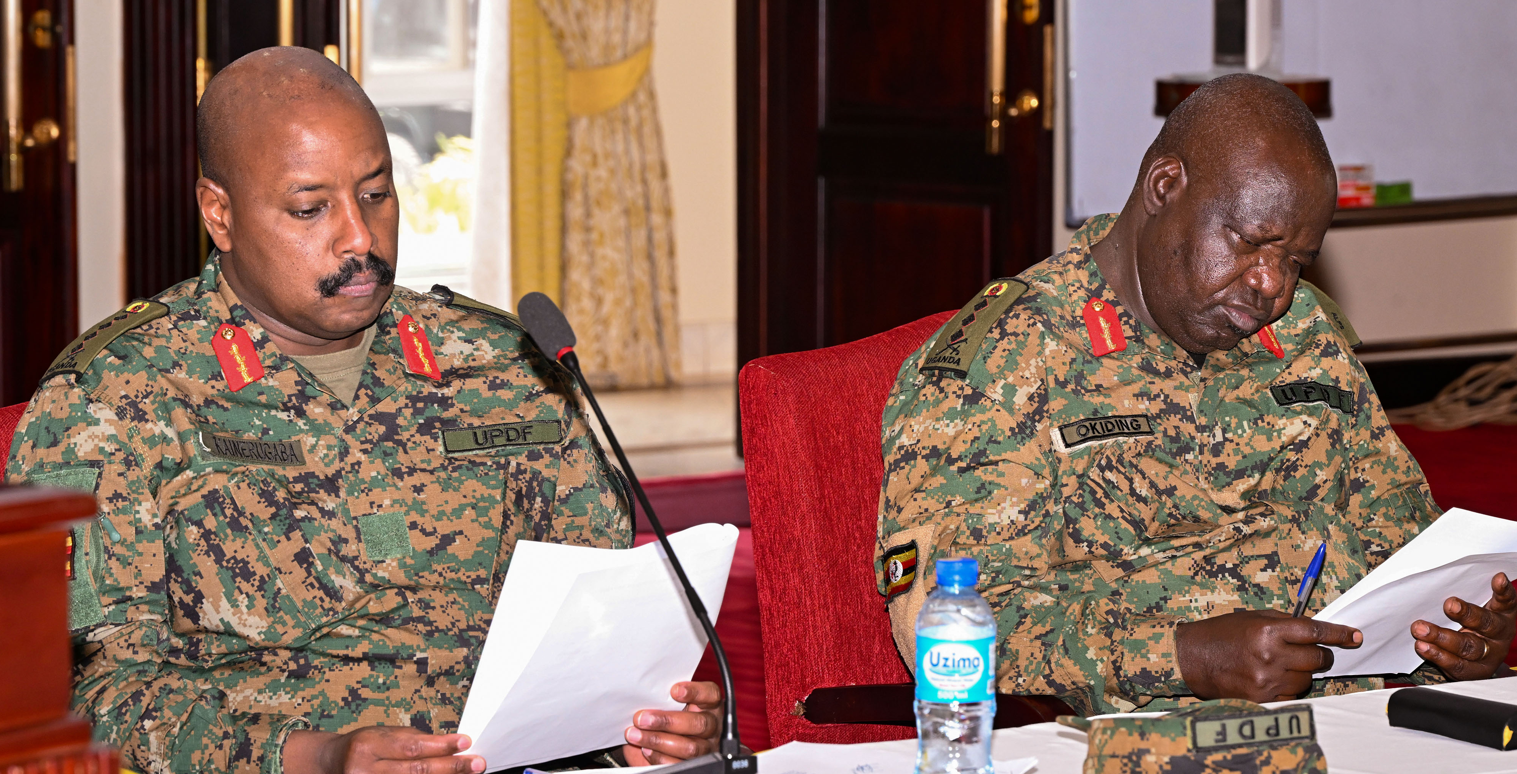
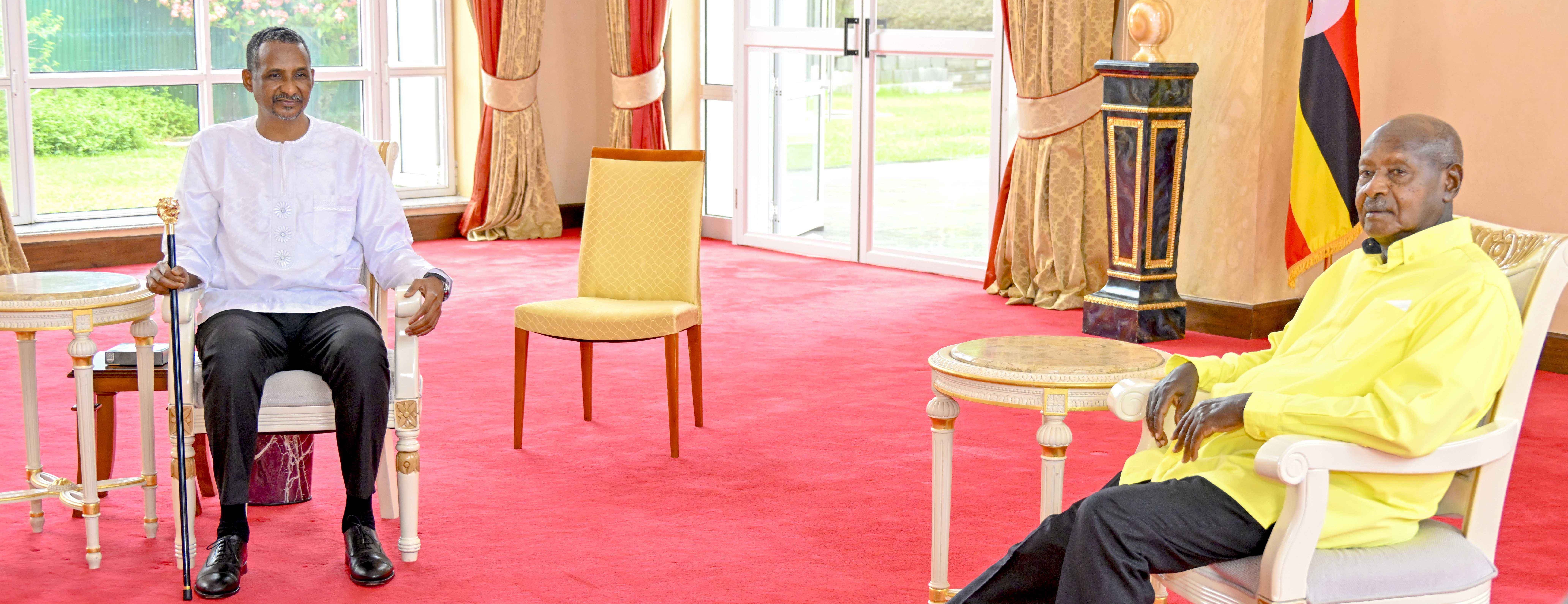
 (1).jpg)
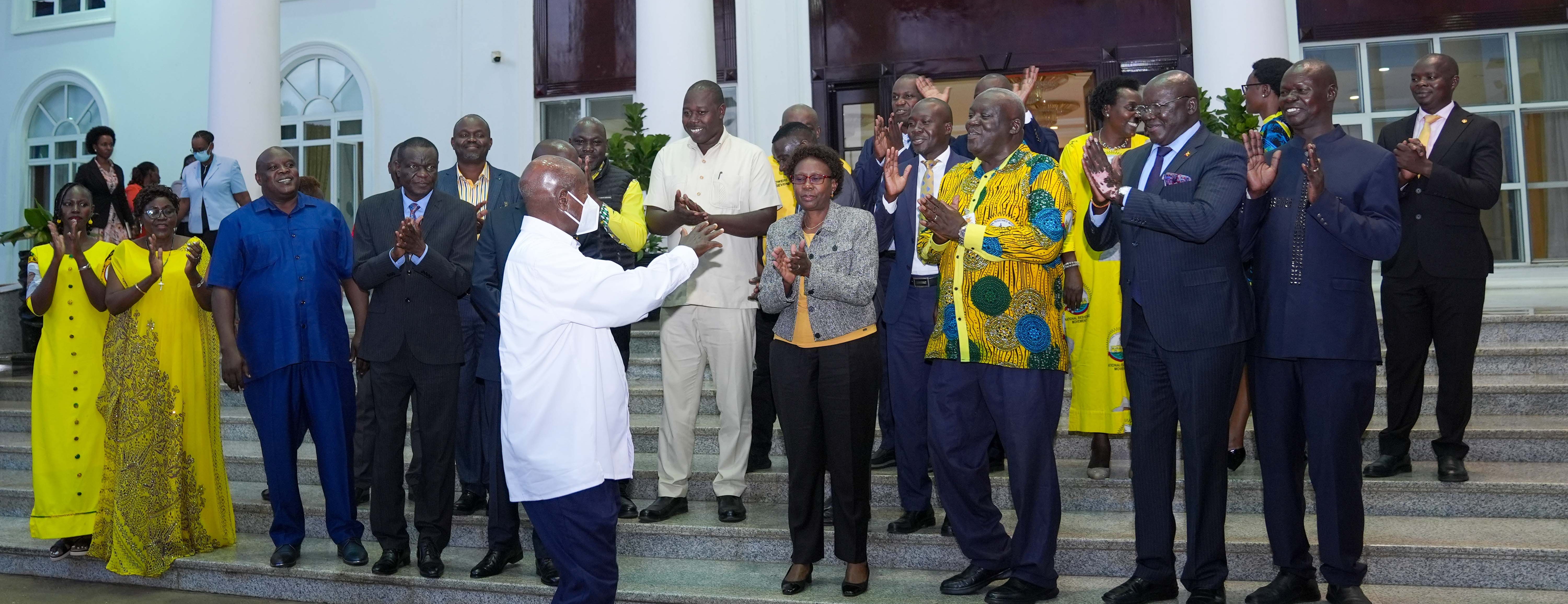
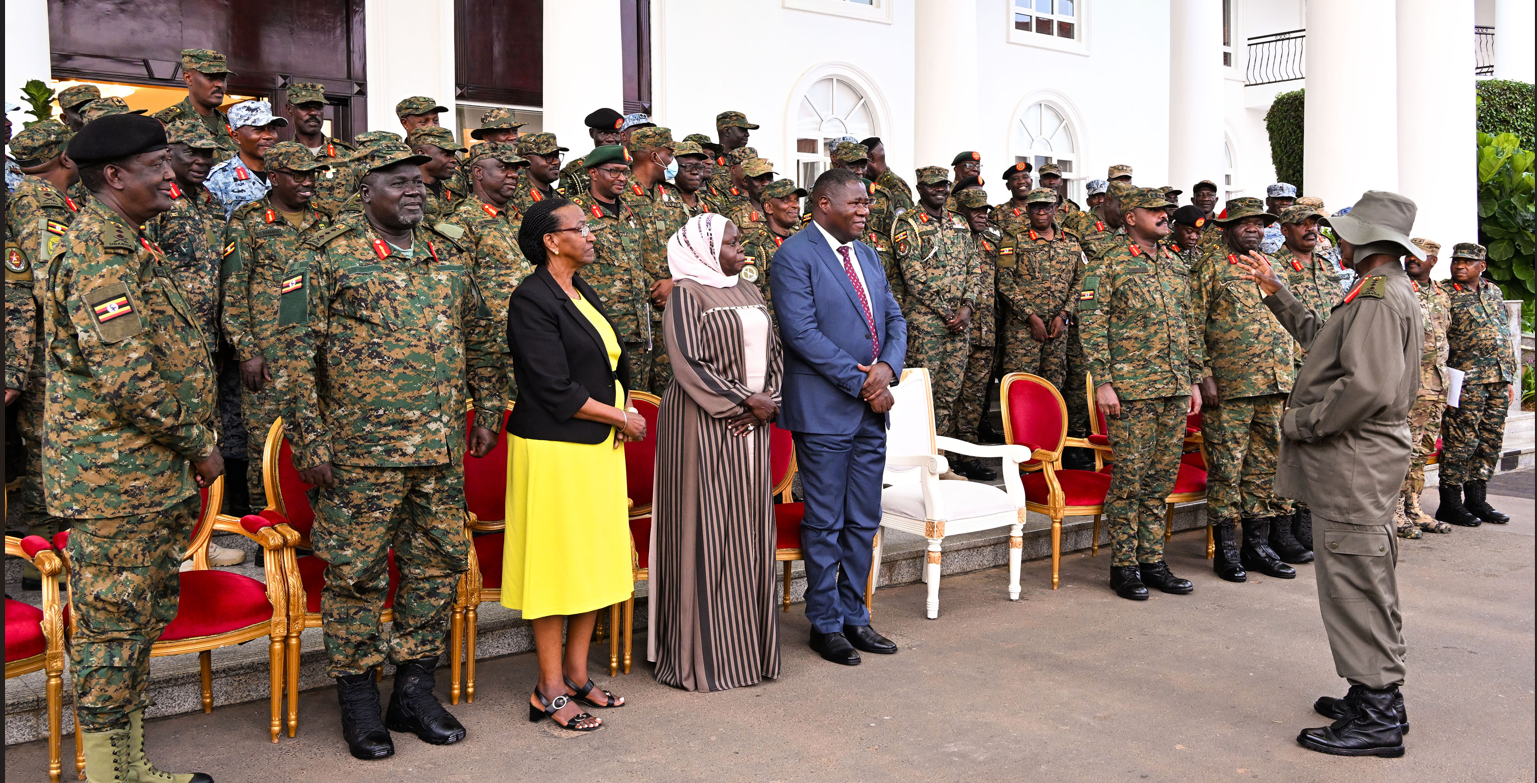
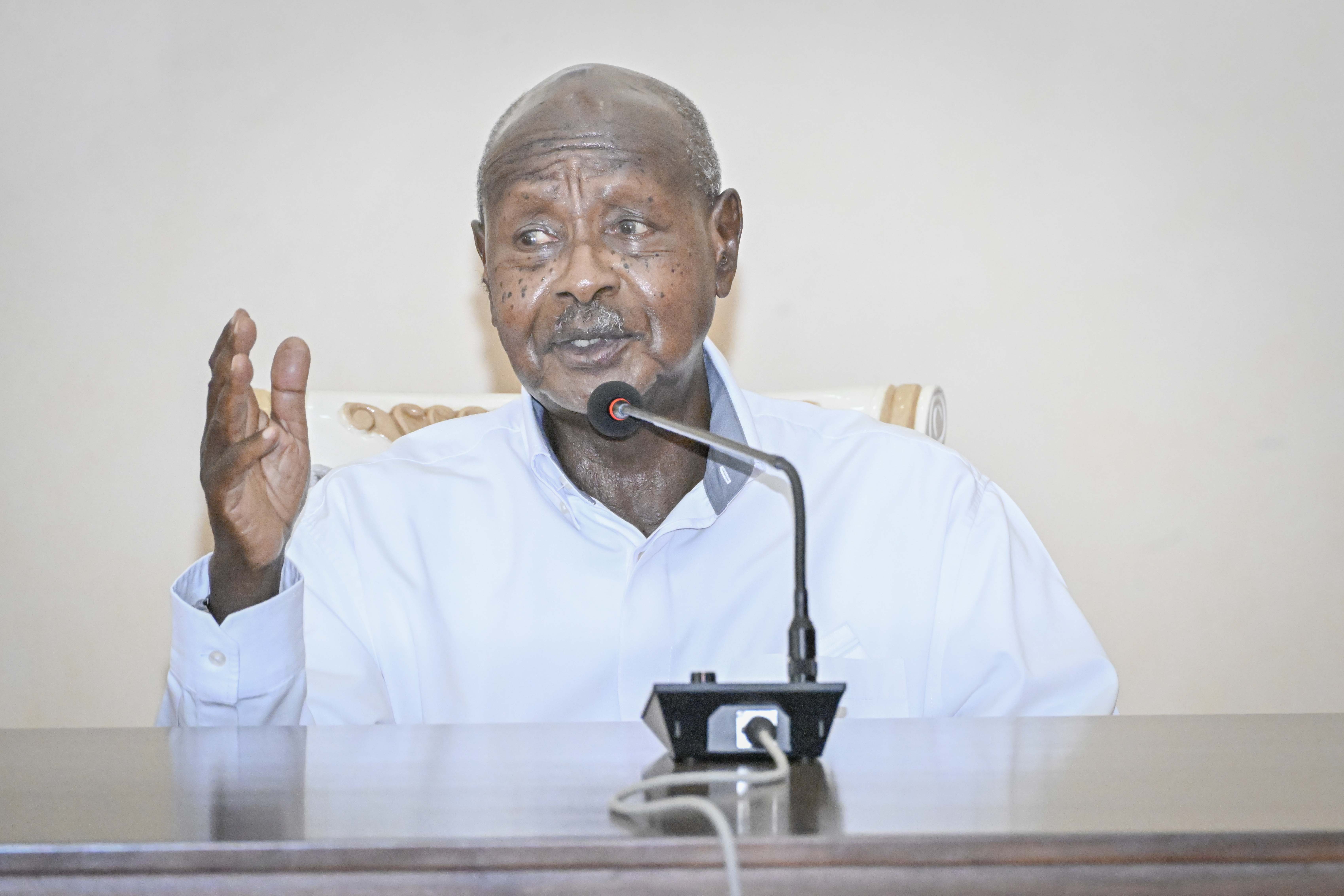
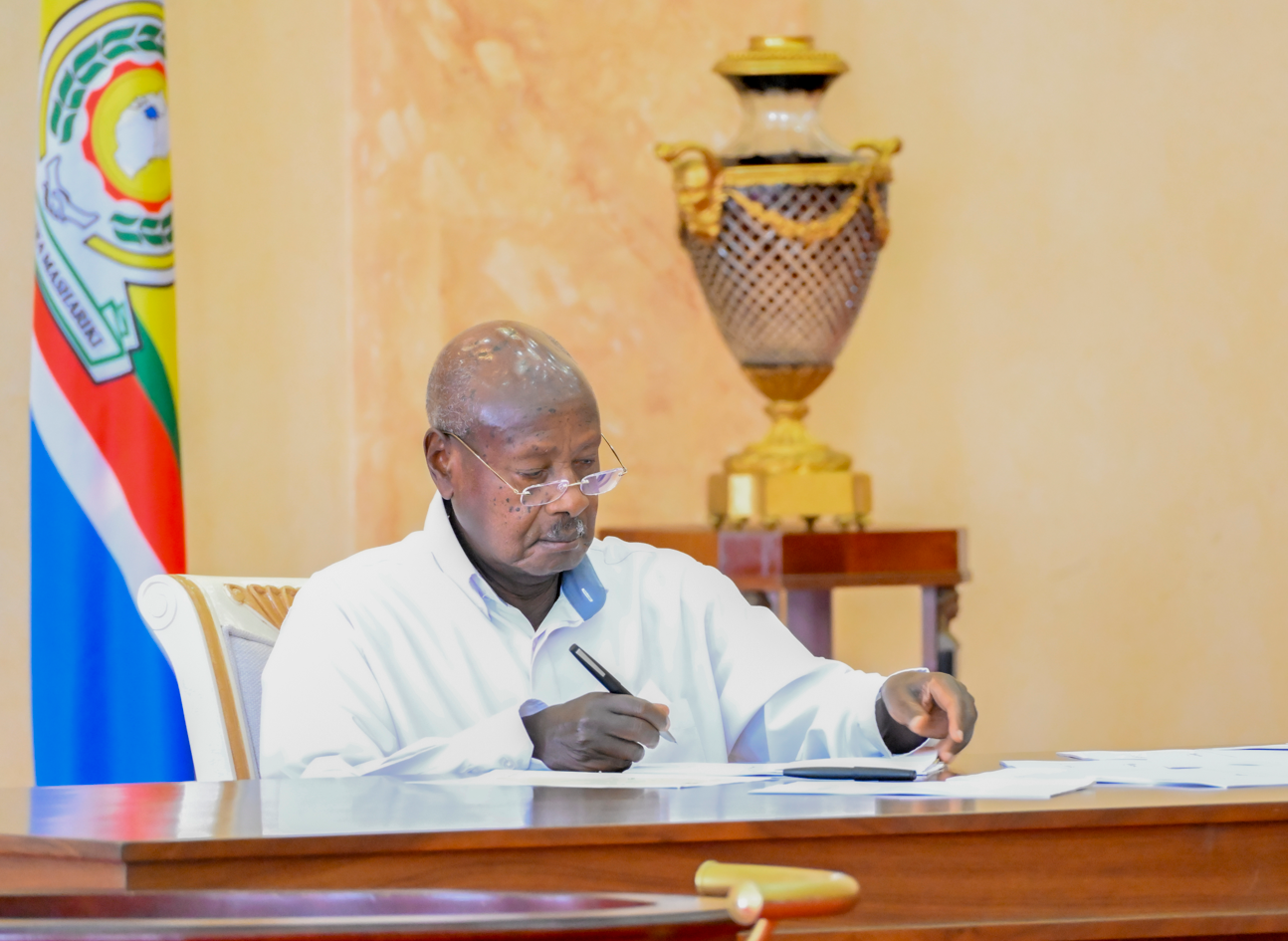
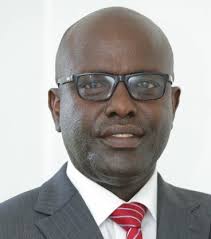
.jpg)



